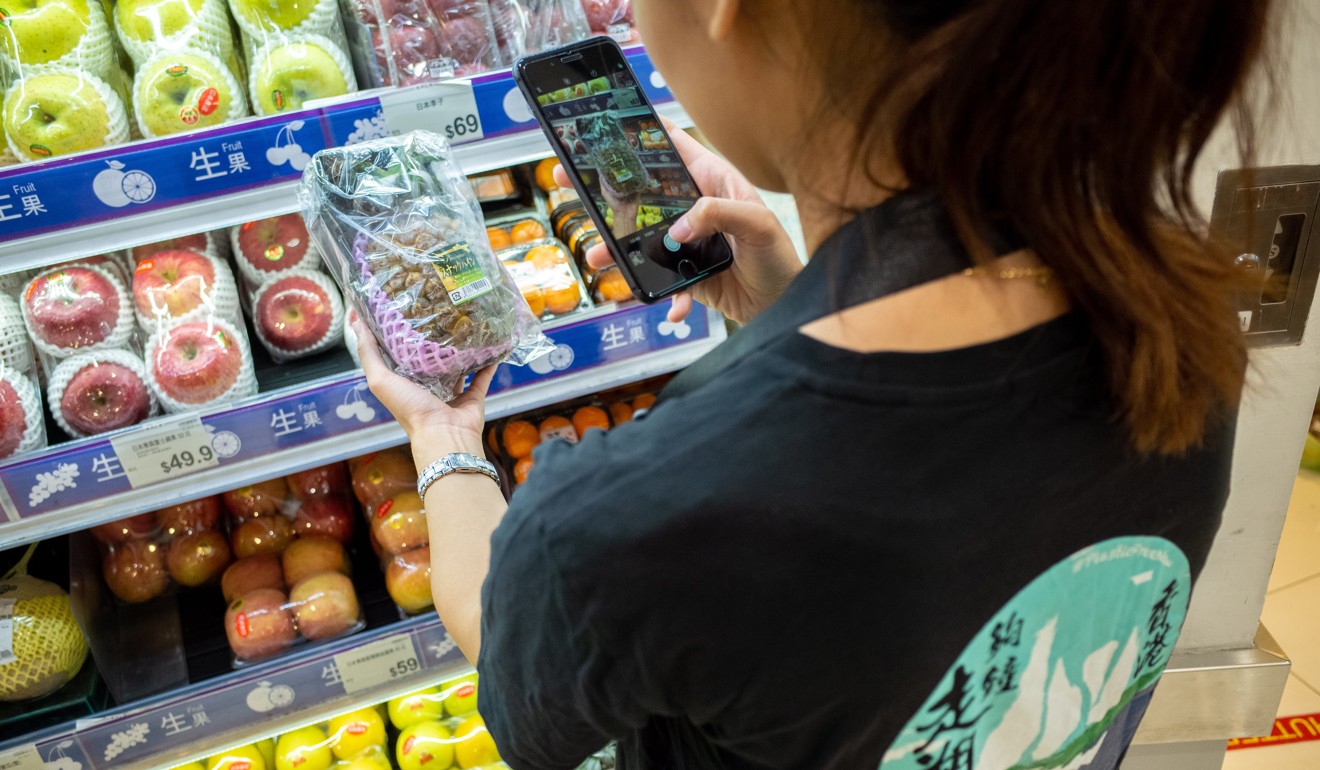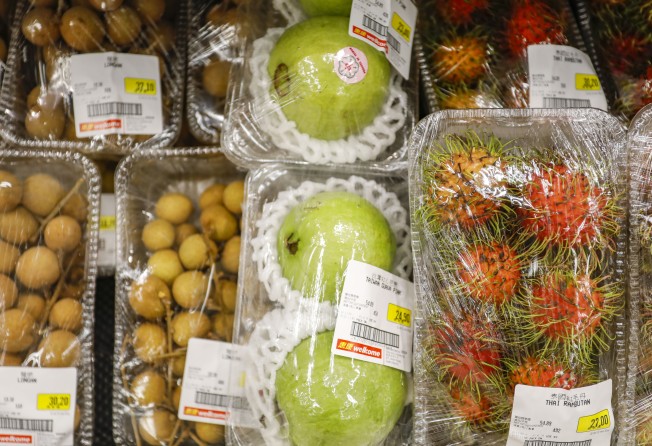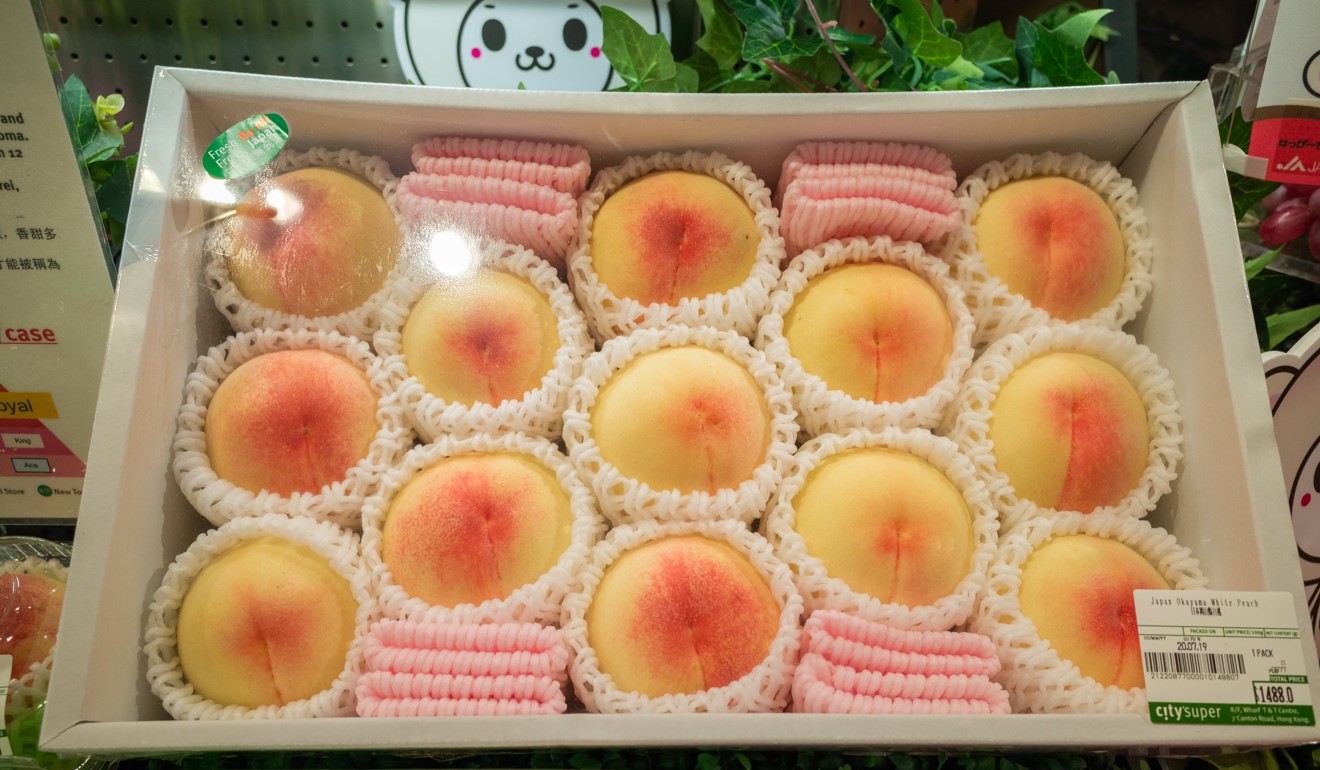
Greenpeace survey finds major Hong Kong supermarkets inconsistent in use of plastic wrapping for produce
- Supermarket chain uses different amounts of plastic wrapping for same product in various store locations, Greenpeace campaigner says
- International environmental watchdog sends letters to stores requesting transparency in plastic use quantity

Hong Kong’s supermarkets are inconsistent in their use of plastic wrapping for produce across their stores and even add extra layers to existing packaging from suppliers, environmental watchdog Greenpeace has found.
The findings were made after Greenpeace ran a survey in April which revealed 70 per cent consumers preferred shopping in plastic-free supermarkets.
In June, the green group followed up with a survey on the use of plastic wrap for fresh produce and cooked foods at 56 supermarket outlets – including Wellcome, ParknShop, Fusion, U Select, Market Place by Jasons, Vanguard, International, Taste, Aeon, Yata, Marks & Spencer and City’super.
Greenpeace gathered 125 volunteers to count how many layers of plastic were used to wrap fruits, pre-cut fruits, vegetables, bread and cooked food sold in supermarkets.

At least half of more than 12,100 products analysed had packaging added in store, said Chan Hall-sion, a Greenpeace campaigner, at a press conference on Wednesday.
“We also found the same supermarket chain may use different amounts of plastic wrap for the same product in various store locations, while some may even have left the product unwrapped,” said Chan.
At Wellcome, the chain with the most outlets across the city, volunteers found ginger sold unwrapped in one store, while other stores sold it wrapped in one or two layers of cling wrap.
Just four outlets of Japanese supermarket chain City’super were found to be using most of the total surveyed plastic.

Chan unwrapped a bag of grapes at the press conference to reveal the store had added cling wrap and a box to an already packaged product.
Another such case was a gift box of peaches sold by City’super, which included at least 20 separate pieces of plastic including fruit netting and a clear plastic casing over cardboard box.
“We also noticed many of the plastic wrapping or boxes were unlabelled, which makes it harder for customers to recycle. Hong Kong may not even have the right facilities to recycle it,” Chan said.
“Considering most of the plastic is added in store, the supermarkets should be able to eliminate most of the plastic wrapping quite easily,” she added.
Greenpeace said it had sent letters to the chains demanding transparency in the amount of plastic they used.
A spokesperson for Wellcome said the chain was “taking progressive steps” to reduce plastic use in its fresh food centres, including asking staff to pack fruit and vegetables based on actual needs.
“We are also working with suppliers to reduce plastic packaging. But we need to package certain food products to preserve their quality, hygiene and freshness.”
City’super did not respond to the Post’s requests for comment.
A S Watson Group, which owns chains as ParknShop and Taste and Fusion, said ParknShop had set up an internal task force and was actively working with suppliers to reduce plastic wraps and explore recyclable packaging.
It also said fruit and vegetables packaged by ParknShop only accounted for 10 per cent of the produce it sold, of which 90 per cent were imported and half of those pre-packed in their countries of origin.
It also said it was trialling plastic-free stores in three university stores – including at the University of Hong Kong, and would roll out the scheme to more stores after a review, while it was also giving attractive discounts to customers who brought their own containers at 20 stores.